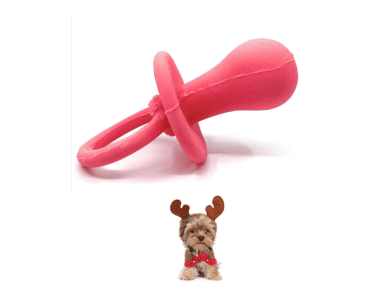As a dog owner, I understand the importance of keeping our furry friends happy and healthy. Dogs, like humans, can experience a range of health problems that require attention and care. Whether you’re a new puppy owner or have owned dogs all your life, it’s crucial to be aware of the most common health problems that can affect dogs. By staying informed, we can take preventative measures and seek the right veterinary care when needed.
There are several common health issues that dogs may encounter throughout their lives. According to research conducted by the Royal Veterinary College and The Kennel Club, the top three most commonly diagnosed health problems in dogs are gum disease, ear infections, and obesity. Other common health problems include overgrown nails, anal sac impaction, diarrhea, vomiting, lameness, arthritis, and more. By knowing about these issues, we can be proactive in addressing them.
Key Takeaways:
- Gum disease, ear infections, and obesity are the most common health problems in dogs.
- Other common health issues include overgrown nails, anal sac impaction, diarrhea, vomiting, lameness, and arthritis.
- Regular veterinary care and preventative measures are essential for maintaining dog health and well-being.
- Proper dental care, ear cleaning, weight management, and breed-specific screenings are important for preventing and addressing health problems.
- Research your dog’s breed for potential genetic health issues and seek guidance from veterinarians.
Gum Disease in Dogs
Gum disease, also known as periodontal disease, is one of the most common health problems in dogs. After eating, bacteria, food, saliva, and other particles combine to form a sticky film called plaque on the teeth. Over time, plaque can harden and become tartar, which is difficult to remove. The buildup of plaque and tartar is rich in bacteria, leading to gum disease and tooth decay in dogs.
Signs of gum disease include bad breath, bleeding gums, pawing at the face, dribbling, and loss of interest in food or chew toys. It’s important for dog owners to establish a habit of caring for their dog’s teeth to prevent gum disease.
Preventing Gum Disease in Dogs
- Brush your dog’s teeth regularly with a dog-specific toothbrush and toothpaste. Start slowly and gradually increase the time and pressure as your dog gets used to the process.
- Provide dental chews or dental treats that can help remove plaque and tartar.
- Incorporate dental-friendly toys into your dog’s playtime routine.
- Ensure your dog has a balanced diet that promotes oral health.
- Schedule regular professional dental cleanings with your veterinarian to remove any stubborn tartar buildup and assess the overall oral health of your dog.
By taking proactive steps to prevent gum disease in dogs, you can help maintain their oral health and overall well-being.
Ear Infections in Dogs
Ear infections, also known as otitis externa, are a common health problem in dogs, especially those with floppy ears. Waste and particles can easily accumulate and get trapped in a dog’s ear, leading to infection.
Dogs with long and floppy ears are particularly prone to ear infections because their ear flaps create a warm and moist environment ideal for yeast and bacteria to thrive.
Signs of Ear Infections in Dogs
- Repeated scratching or rubbing of the ears
- Unpleasant discharge
- Foul odor
- Head tilting or shaking
- Lack of balance
- Sensitivity when the ears are touched
When these signs are observed, it is important to seek immediate veterinary care to prevent the infection from worsening.
Regular cleaning and proper ear maintenance can help prevent ear infections in dogs. This includes gently cleaning the ears with a veterinarian-recommended solution and ensuring that excess moisture is removed after bathing or swimming.
Proper ear care is especially crucial for dogs with floppy ears, as they are more susceptible to infections. By implementing regular ear cleaning as part of their pet care routine, owners can effectively minimize the risk of ear infections and keep their dogs’ ears healthy and discomfort-free.
Obesity in Dogs
Obesity is a significant health concern affecting dogs, with an estimated 30 to 60% of the canine population being affected. Just like humans, dogs can suffer from weight management issues that can lead to various health problems, including diabetes, heart disease, and joint issues.
One of the key factors in managing obesity in dogs is maintaining a balanced diet. Providing dogs with nutritious and portion-controlled meals is essential for weight management. Consultation with a veterinarian can help determine the appropriate diet for your dog’s specific needs. Additionally, avoiding excessive treats and table scraps can help prevent overeating and weight gain.
Regular exercise is equally crucial for dogs to maintain a healthy weight. Engaging in activities such as daily walks, interactive play, or agility training can help dogs burn calories and stay fit. The amount and type of exercise will depend on your dog’s breed, age, and overall health. A veterinarian can provide guidance on suitable exercise routines for your furry companion.
As a responsible dog owner, it’s essential to be aware of the signs of obesity in dogs. These include the absence of a defined waist, difficulty feeling the ribs, a rounder face and neck, lack of interest in exercise, fatigue, and breathing difficulties. If you notice any of these signs, it’s important to consult with a veterinarian promptly to develop a suitable weight management plan.

By addressing obesity in dogs through a combination of a balanced diet and regular exercise, you can ensure your furry friend’s overall health and well-being. Remember, prevention is key, so it’s important to monitor your dog’s weight and make the necessary adjustments to promote a healthy lifestyle.
Other Common Health Problems in Dogs
In addition to gum disease, ear infections, and obesity, dogs can experience several other common health problems. It’s important for dog owners to be aware of these issues to provide the best care for their furry friends. Below are some of the common health problems that dogs may encounter:
- Overgrown Nails in Dogs: Overgrown nails can be painful for dogs and may cause lameness if not addressed. Regular trimming of nails is essential to prevent discomfort and maintain proper mobility.
- Anal Sac Impaction: Anal sac impaction occurs when the anal sacs, which produce a foul-smelling fluid, become blocked. This can cause discomfort for dogs and result in a fishy odor. Veterinary attention is necessary to resolve the issue.
- Diarrhea in Dogs: Diarrhea in dogs can have various causes, including dietary indiscretion, infections, or underlying health conditions. It’s important to monitor for any accompanying symptoms and seek veterinary care if the diarrhea persists or worsens.
- Vomiting in Dogs: Dogs may vomit due to a range of issues, including gastrointestinal upset, dietary changes, or more serious illnesses. If vomiting persists or is accompanied by additional concerning symptoms, veterinary advice should be sought.
- Lameness in Dogs: Lameness in dogs can be caused by injuries, such as strains or fractures, or joint diseases like arthritis. Identifying the underlying cause is crucial for appropriate treatment and management of pain.
- Arthritis in Dogs: Arthritis is a common joint disease in dogs, particularly in older age. It can cause discomfort, stiffness, and reduced mobility. Veterinary care and proper management are essential to improve the quality of life for dogs with arthritis.
If your dog exhibits any of these health problems, it’s important to seek prompt veterinary care. A veterinarian can provide a proper diagnosis and recommend appropriate treatment options to alleviate any discomfort and improve your dog’s overall well-being.
Genetic Health Problems in Specific Dog Breeds
Certain dog breeds are more prone to specific genetic health problems. It’s important for dog owners to be aware of these breed-specific health issues to better care for their furry companions.
For example, Siberian Huskies are predisposed to autoimmune disorders and skin issues. Bulldogs, on the other hand, may experience breathing problems due to their unique anatomy. Pugs are susceptible to eye problems like eye prolapse, while large breeds like German Shepherds are prone to hip dysplasia.
Other breed-specific health problems include epilepsy in beagles, patellar luxation in shih tzus, cancer in boxers, back issues in dachshunds, and heart conditions in Dobermans. These health risks can vary depending on the dog’s breed and genetics.
As a responsible dog owner, it’s crucial to research and understand your breed’s potential health risks. Consulting with a veterinarian can provide valuable insights into specific care or screening measures recommended for your dog’s breed.
Remember, knowledge about breed-specific health issues can help you take the necessary precautions and provide the best possible care for your beloved pet.
Conclusion
Maintaining the health and well-being of your dog is crucial for their overall quality of life. By being proactive and addressing common health problems, such as gum disease, ear infections, obesity, and genetic predispositions, you can ensure your furry friend stays happy and healthy.
Regular dental care, including brushing your dog’s teeth and providing dental treats, can help prevent gum disease. Proper ear cleaning and maintenance can reduce the risk of ear infections, especially for dogs with floppy ears. Managing your dog’s weight through a balanced diet and regular exercise can prevent obesity and associated health issues.
Additionally, it’s important to be aware of breed-specific health problems and seek appropriate screenings and care. Remember that each dog is unique and may require individual attention from a veterinarian. By staying informed, proactive, and providing the right care, you can promote your dog’s health and wellness throughout their life.
Take the necessary preventative measures and consult with your veterinarian for guidance on dog health management. With proper care, you can maintain your dog’s wellness, prevent common health problems, and support their overall health for years to come.
FAQ
What are the most common health problems in dogs?
The most common health problems in dogs include gum disease, ear infections, obesity, overgrown nails, anal sac impaction, diarrhea, vomiting, lameness, and arthritis, among others.
What is gum disease in dogs?
Gum disease, also known as periodontal disease, is a common health problem in dogs. It occurs when plaque and tartar build up on the teeth, leading to bacteria growth and tooth decay.
How can I prevent gum disease in my dog?
Regular dental care, such as brushing your dog’s teeth and providing dental treats or toys, can help prevent gum disease in dogs.
What are ear infections in dogs?
Ear infections, also known as otitis externa, are common in dogs, especially those with floppy ears. They are caused by the accumulation of waste and particles in the ears, leading to a bacterial or yeast infection.
How can I prevent ear infections in my dog?
Regular ear cleaning and proper ear maintenance, such as drying the ears after bathing or swimming, can help prevent ear infections in dogs.
Why is obesity a concern for dogs?
Obesity in dogs can lead to various health problems, including diabetes, heart disease, and joint issues. Maintaining a balanced diet and providing regular exercise can help prevent obesity in dogs.
How can I manage my dog’s weight?
Consult with your veterinarian to develop a suitable diet and exercise plan for your dog to manage their weight and promote overall health.
What are some other common health problems in dogs?
Other common health problems in dogs include overgrown nails, anal sac impaction, diarrhea, vomiting, lameness, and arthritis. Prompt veterinary care should be sought for these issues.
Are there specific health problems that certain dog breeds are prone to?
Yes, certain dog breeds are more prone to specific genetic health problems. For example, Siberian Huskies are predisposed to autoimmune disorders and skin issues, while bulldogs may experience breathing problems due to their anatomy.
How can I prevent and manage my dog’s breed-specific health problems?
Research your dog’s breed and consult with your veterinarian to understand and address the breed-specific health risks. This may include regular screenings or specific care recommendations.
How can I maintain my dog’s overall health and well-being?
To maintain your dog’s health, it’s important to provide regular dental care, clean their ears, manage their weight, and seek veterinary care for any health concerns. Additionally, research your dog’s breed-specific health risks and take preventative measures accordingly.






